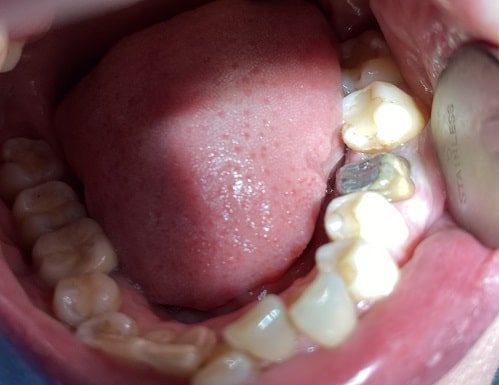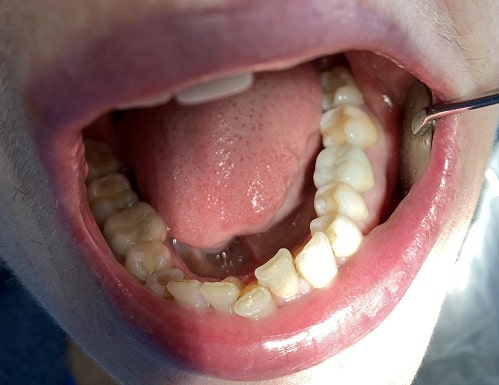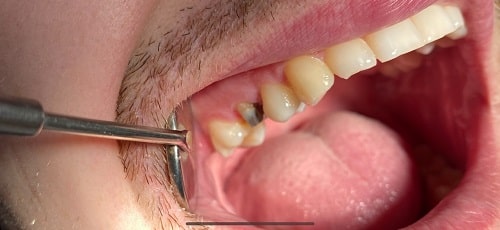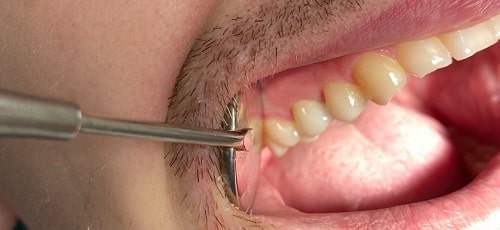What is a zirconia dental crown?
Zirconia dental crowns are made from zirconium dioxide, a white powdered ceramic material. Its ceramic properties and the fact that is milled from a single block make it a strong dental prosthetic.
In fact, its strength allows for far thinner dental crowns than those made with metals. Creating a strong, yet thin dental crown is ideal as it only requires a minimal amount of healthy tooth tissue to be removed for placement. Retaining as much of your natural tooth as possible is always our goal in maintaining a healthy smile for many years to come.
Zirconia’s ceramic properties and natural white coloring make for a relatively effortless match to the rest of your smile. It comes in several forms, each with its own level of translucency. Your dentist can select the one that will be a perfect match.
Are Zirconia Crowns Safe?
All-ceramic Zirconia dioxide has been used extensively in the field of medical prosthetics, such as joint replacements, since the 1960’s.
In the 1990’s, Zirconia was introduced to dentistry in the form of endodontic posts and dental implants. Milled Zirconia crowns became commercially available in 2010.
Zirconia has a long history of use in the human body. Its strength and biocompatibility make it the ideal, safe choice for a restorative dental material.
Many patients are concerned about the use of metals in dental restorations and how they may lead to adverse health effects. With Zirconia, this concern is alleviated because the material is chemically unreactive
ZIRCONIA CROWN
BEFORE & AFTER
ZIRCONIA CROWN BEFORE & AFTER

Zirconia Crown Before

Zirconia Crown After
ZIRCONIA CROWN BEFORE & AFTER

Zirconia Crown Before

Zirconia Crown After
Zirconia dental crown benefits
Crowns made of zirconia are becoming increasingly common, and they do offer some advantages.
Strength
One of the biggest advantages of zirconia is its strength and durability. Consider how much force your back teeth exert on the food that you chew.
Your crowns need to be made of a strong material, so zirconia may be a good choice for crowns in the back of your mouth. Also, because zirconia is so strong, a dentist won’t have to do as much preparation of your tooth.
Longevity
Zirconia-based crowns fared just as well over the course of 5 years as metal-based crowns, according to a 2017 randomized controlled trial published in the Journal of Dentistry. And crowns made of zirconia, called monolithic zirconia crowns, are especially durable.
Biocompatibility
Zirconia is the choice of many dentists for its biocompatibility, which means it’s less likely to provoke the body into producing a reaction or immunological response like inflammation.
Aesthetic
The white coloring of zirconia mimics that of your natural teeth. There is no glaringly obvious silver or gold to feel self-conscious of each time you smile. And as years pass and gums recede, as they typically do with age, you won’t need to worry about developing that tell-tale gray line so commonly seen with porcelain-fused-to-metal crowns.
The procedure for installing a dental crown
The dentist will:
- Take an X-ray of your mouth and prepare your tooth for the procedure, which may include administering local anesthetic.
- Remove part of the outer layer of your tooth, if necessary.
- Make an impression of your tooth.
- Install a temporary crown over your tooth.
- Have a dental lab make the crown from your impressions.
- Ask you return to their office after the new crown is made so that they can cement it to your tooth
How long should a zirconia crown last?
To ensure you are getting the most out of your crown, it is important you are taking care of it. Your crown may last from 10 – 15 years with good oral hygiene and care. However, many factors impact on the longevity of a crown, such as teeth grinding or clenching. This is why it is important to see your dentist every 6 months to get the most of your crown and to ensure the rest of your mouth is healthy.
Therefore, each case is different, and a certain timeframe may not be the same as someone else’s.
Zirconia crown VS Ceramic Crowns VS Porcelain Crowns
- Zirconia crown is different from the ceramic crown in its solidness; zirconia is much more substantial material. Even though this is a benefit of zirconia crowns in most cases, sometimes it can be a disadvantage when we make dental bridges between certain teeth, and we need a material with more elasticity
- Chipping of the ceramics cannot occur with monolithic zirconia crowns because there is no ceramics that can chip
- Unlike zirconia crown, a porcelain crown is not as strong, durable and long-lasting
- Also, when we talk about aesthetics, the zirconia crown is a much better aesthetically solution because it gives teeth natural colour and natural appearance
Although zirconia crowns are comparatively costlier than their counterparts, single-day fabrication, durability, and superior looks make it a top-notch option in replacing or capping a natural tooth.
